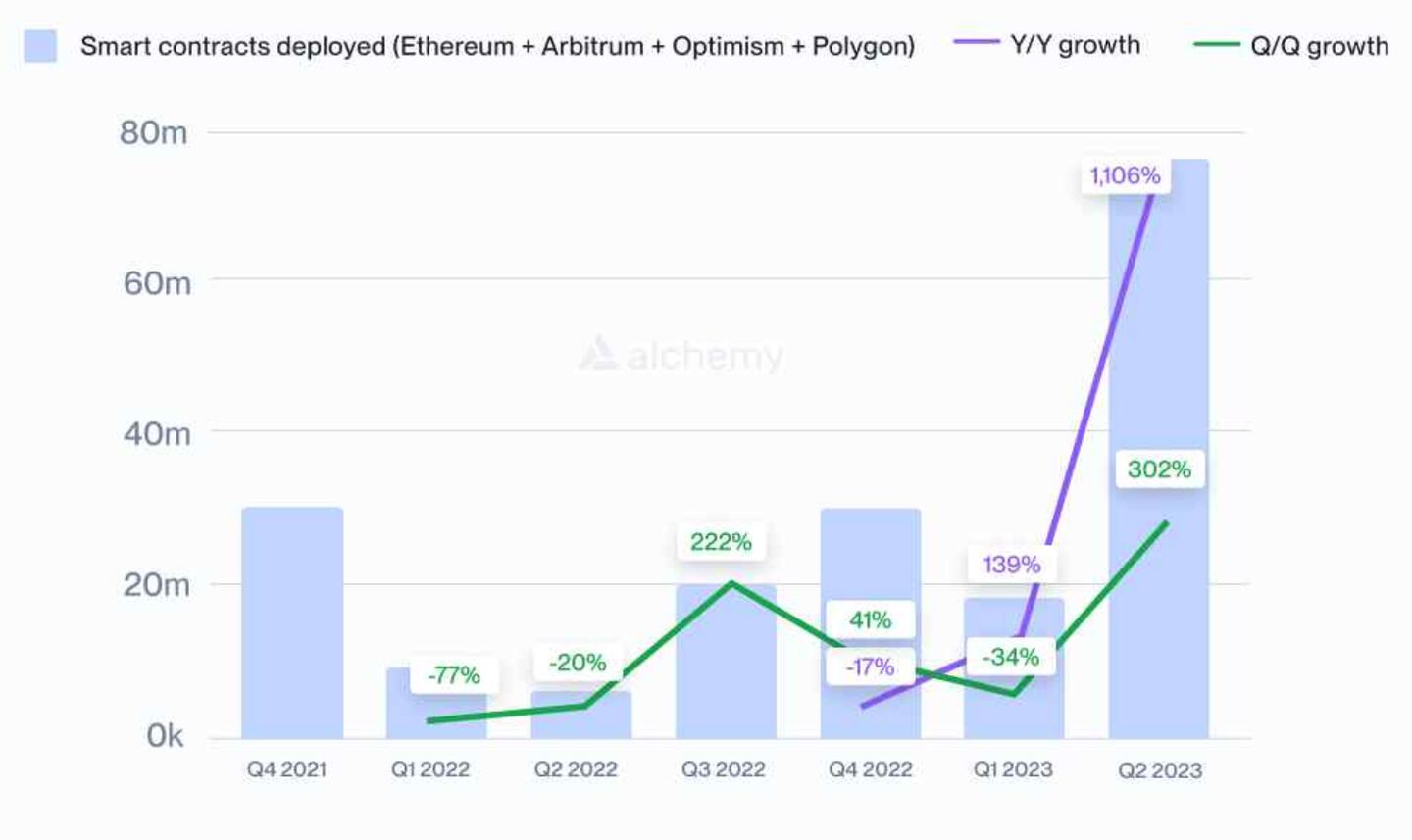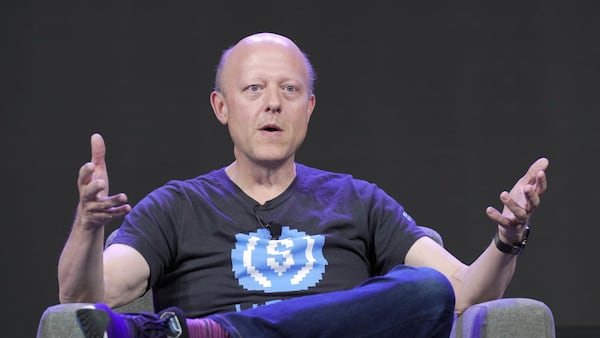- Smart contracts deployed on Ethereum and related blockchains have surged 12-fold over the past year.
- The number of new, user-friendly crypto wallets jumped over 1,200%, or 13-fold, in July.
- That development could augur a boon for user experience in crypto.
Companion blockchains that have made Ethereum cheaper to use have been a boon for crypto developers, according to a new report.
Smart contracts deployed on Ethereum and a trio of related blockchains grew 1,100%, or 12-fold, year-over-year in the second quarter.

That’s according to new research from Alchemy, a company that builds tools for crypto software developers.
Alchemy growth analyst Blake Tandowsky attributed the boom to layer 2 blockchains built on top of Ethereum, such as Arbitrum and Optimism, having dramatically reduced the cost of using the world’s largest smart contract platform.
NOW READ: Why Ethereum is so dominant — and why it’s not going anywhere
In addition, some of those smart contracts are enabling a more familiar user experience that proponents hope will lower the barrier to use blockchain technology.
In the same period, there were more than 29,000 active users of new, smart contract-based crypto wallets made possible by an Ethereum upgrade in March, of which 22,000 were active in June.
In July, there were almost 300,000 active users of those smart contract-based wallets, according to data compiled by pseudonymous data analyst Kofi, a contributor to DefiLlama and Alchemy.
Polygon, Arbitrum and Optimism drive boom
Layer 2 blockchains allow developers to deploy smart contracts “at a higher rate than ever before,” Tandowsky told DL News. “That’s what you’re seeing on Polygon … or Optimism and Arbitrum, who are also adopting smart contract wallet concepts.”
The news comes on the back of a drop in funding, regulatory clashes, and a slow decline in the number of blockchain developers having dwindled by 22% over the past year, according to a recent report from web3-focused venture fund Electric Capital.
While there’s been a drop in the number of developers, those that remain are churning out more smart contracts than ever, according to Alchemy.
NOW READ: Blockchain developer ranks fall 22% amid scandals — but Sui and Aptos are bucking the trend
The boom has been made possible by Ethereum’s layer 2 blockchains, which batch and compress user transactions before appending them to Ethereum, a process that allows people to use it as a decentralised settlement layer while avoiding its notoriously high transaction fees.
‘Dream of the Ethereum developer community’
That, in turn, has fuelled developers’ work on a relatively new feature called account abstraction, which enables the more flexible, smart contract-based crypto wallets.
Account abstraction makes it possible to recover an account — similar to how one might regain access to a social media or email account if they’ve forgotten their password — along with a host of other features.
Two years ago, Ethereum founder Vitalik Buterin wrote that account abstraction had “for a long time been a dream of the Ethereum developer community.”
‘It’s a nascent transformation within the industry’
— Blake Tandowsky, growth analyst at Alchemy
Before the March update, users needed a passcode comprised of at least 12 randomly generated words — a seed phrase — in order to access their Ethereum wallets. Forgetting any of those words, means losing access to their crypto — forever.
“While it’s a nascent transformation within the industry, we did see compounding growth” in the second quarter, Tandowsky said. “Developers have started to build products, and there are users using these products — in a small way, but in a fast growing way.”
Account abstraction also allows protocols to cover users’ transaction fees, known as gas, which can fluctuate dramatically and occasionally make Ethereum prohibitively expensive to use.
“One of the complaints we’ve seen from application users is that it’s really hard and annoying to have to go all the way through the transaction flow and pay for gas whether that be on Ethereum or other chains,” Tandowsky said.
Covering user’s transaction fees, he added, “helps to lower the friction to transacting.”



